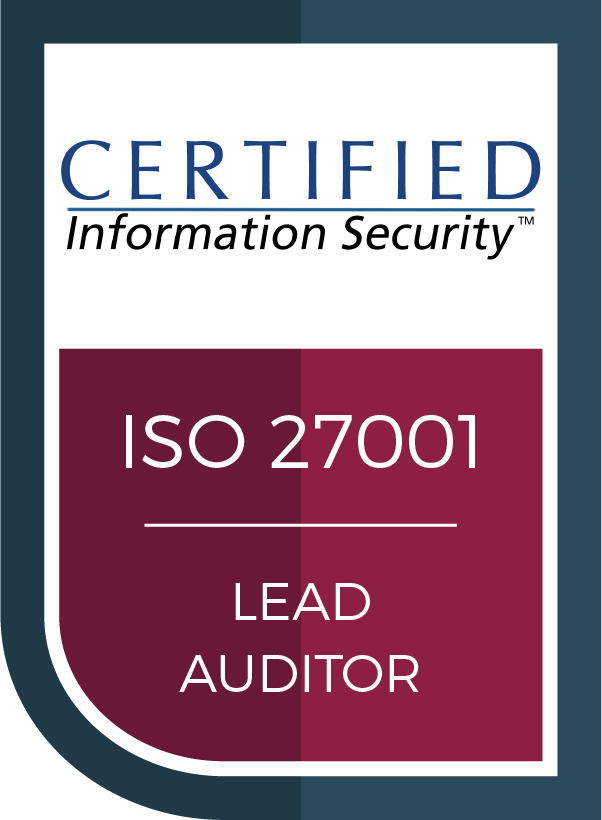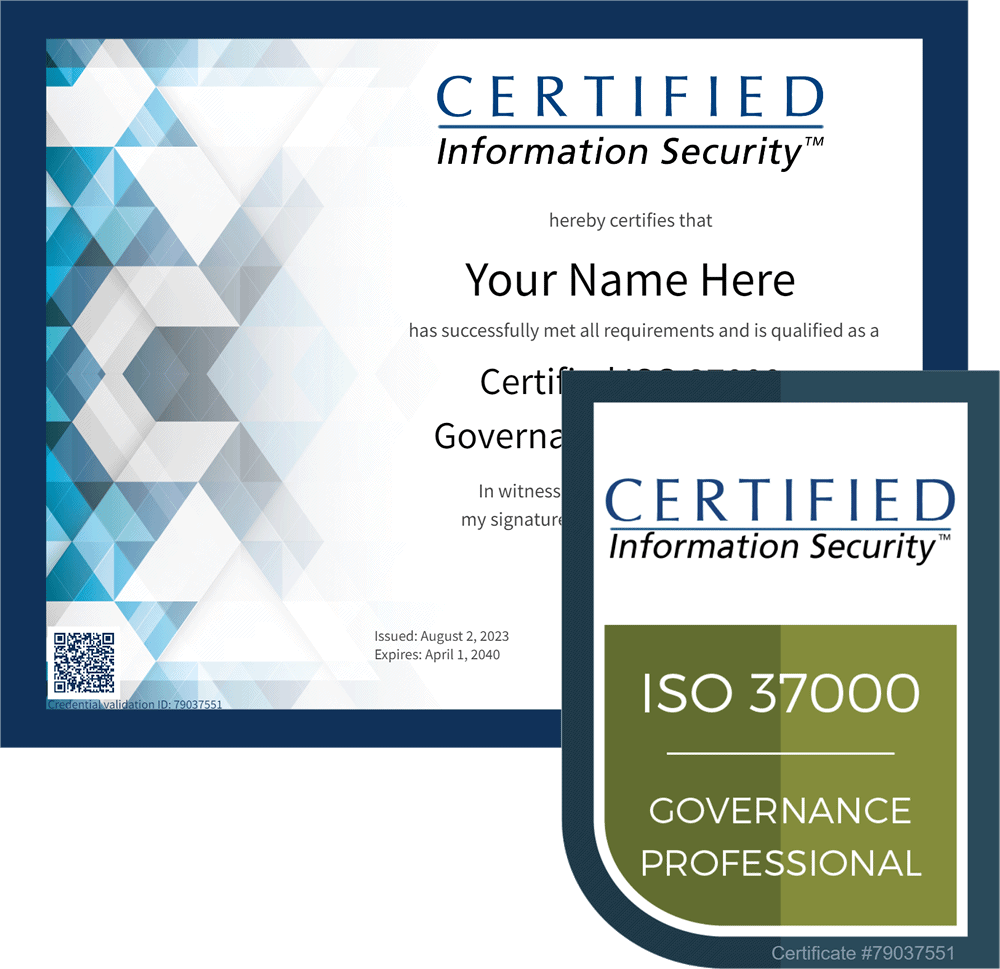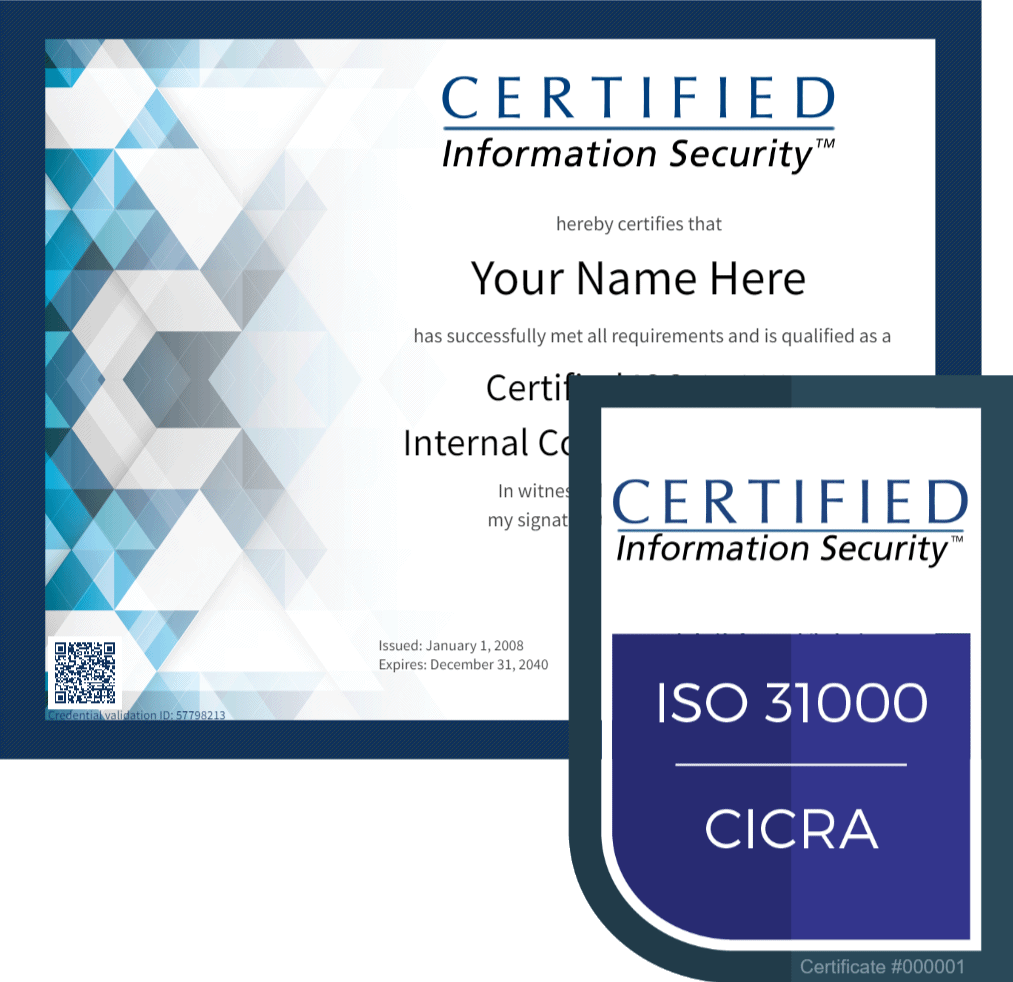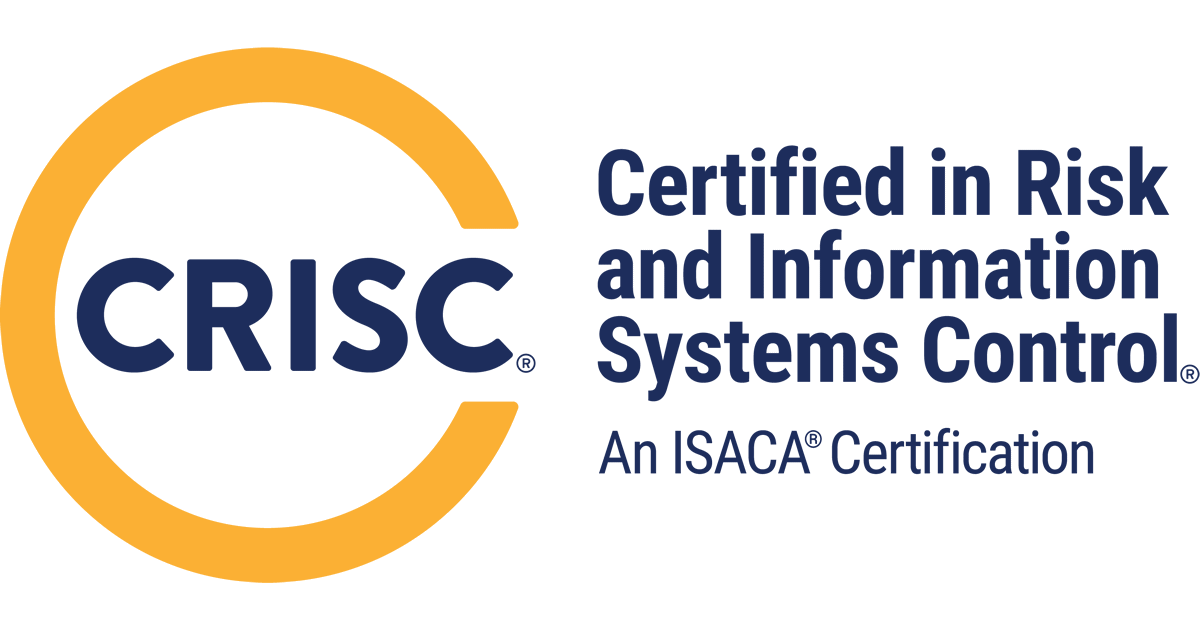|
Get ahead. Get the online training, certification programs, and policy tool kits |
3. ISO 27001 Lead Auditor Training (30 Days)
Description
| Terms of Service: Unlimited online utilization of this course is provided for a single user for 30 days in duration from the time of purchase according to the terms of Certified Information Security's End-User License Agreement. The subscription expires 30 days after purchase. Subscription time is not banked, and cannot be "frozen", deferred, or re-scheduled. As this is a subscription-based course, no permanent download of course materials is provided.This subscription does NOT auto-renew. |

 Based upon the ISO 27001 related auditing standards ISO 27007 and 19011, this one-day additional course will provide an intensive overview of how to manage an internal audit of an organization's risk management program in along with its corresponding ISMS. This course will also provide valuable guidance on conducting the internal audits, on establishing and validating the competence of ISMS auditors, and prepare you for your ISO 27001 lead auditor certification exams required for the well-recognized ISO 27001 Lead Auditor professional certification. Learn more.
Based upon the ISO 27001 related auditing standards ISO 27007 and 19011, this one-day additional course will provide an intensive overview of how to manage an internal audit of an organization's risk management program in along with its corresponding ISMS. This course will also provide valuable guidance on conducting the internal audits, on establishing and validating the competence of ISMS auditors, and prepare you for your ISO 27001 lead auditor certification exams required for the well-recognized ISO 27001 Lead Auditor professional certification. Learn more.
This course is applicable to those needing to understand or conduct internal or external audits of a risk management system supporting an ISMS, or how to manage an ISO 27001 ISMS audit program. This is the only 27001 Lead Auditor training and professional examination program to incorporate ISO's 27007 standard as core content within its program. Building upon the foundation understanding of the ISO 27005 risk management framework and ISO 27001 framework validated by the Certified Internal Controls Architect credential , the ISO 27001 Lead Auditor certification by CIS certifies your ability to audit the formal structure, governance, and policy of an ISO 27001 conforming ISMS. Furthermore, the ISO 27001 Lead Auditor certification ensures that you are qualified to assure strategic objectives according to core ISO 27001, 27002, 27003, and 27005 best practices.
 Upon completion of this training and certificate program, you will:
Upon completion of this training and certificate program, you will:
-
- be equipped with knowledge and skills required to perform audits of Information Security Management Systems (ISMS) against the ISMS standards;
- be able to expand your auditing competency;
- be able to increase your credibility through gaining international recognition; and
- be able to improve your résumé/CV and help to increase your earning potential.
Course content
- Auditing the Audit Function & Program
- Principles of auditing
- Managing an audit program
- Establishing the audit program objectives
- Establishing the audit program
- Role and responsibilities of the person managing the audit program
- Competence of the person managing the audit program
- Determining the extent of the audit program
- Identifying and evaluating audit program risks
- Establishing procedures for the audit program
- Identifying audit program resources
- Implementing the audit program
- Monitoring the audit program
- Reviewing and improving the audit program
- Performing an audit
- Initiating the audit
- Preparing audit activities
- Conducting the audit activities
- Preparing and distributing the audit report
- Completing the audit
- Conducting audit follow-up
- Auditing the ISMS Scope, Policy, Risk Assessment Approach, and ISMS Implementation
- Audit Criteria
- ISO 27005 Best Practices
- ISO 27007 Evidence Collection Recommendations
- Auditing the ISMS Monitoring and Review
- Audit Criteria
- ISO 27007 Evidence Collection Recommendations
- Audit the ISMS Documentation Fulfillment
- Audit Criteria
- Audit the ISMS Organization and Management Commitment
- Audit Criteria
- ISO 27003 Best Practices
- ISO 27007 Evidence Collection Recommendations
- Auditing ISMS Internal Audit against ISO 27001 Requirements
- Audit Criteria
- ISO 27007 Evidence Collection Recommendations
- Auditing Management Review
- An overview of using ISO TR 27008 to audit internal controls
 |
Upon successful course completion, a dated certificate for 8 hours of CPE credit is issued to your name. The certificate can be viewed and downloaded from your online gradebook. Completion of this course fulfills all prerequisite training requirements for CIS exam #ISMS103. |



















